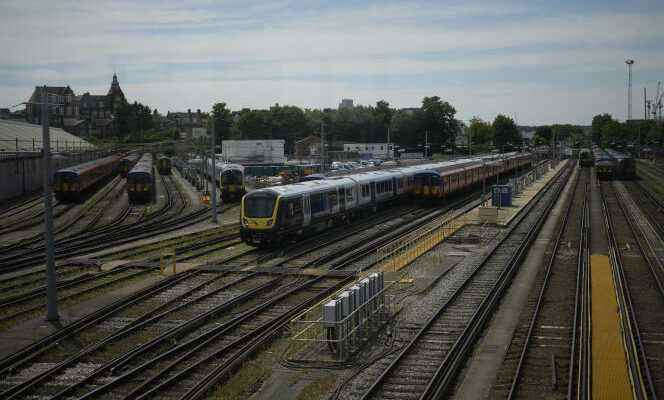Deserted stations, but rare trains stormed. A London Underground practically at a standstill. And a country, under a summer sun, which has largely worked at home, avoiding travel. The United Kingdom experienced its biggest train strike since 1989 on Tuesday, June 21. In accordance with the law, a minimum of traffic remained in place, but barely 20% of the trains were operating. Mike Lynch, the general secretary of the Rail, Maritime and Transport Workers (RMT) union could rejoice at the start of the evening: “It’s fantastic to see the strike being followed so closely. It exceeded our expectations. »
Two more walkout days are planned for this week, but that’s just the start, he warns: “RMT members are leading the way for all workers in the country who are fed up with seeing their wages and working conditions destroyed by the conjunction of big business profits and government policy. »
The British media, never short of images, are already talking about a “summer of discontent”in reference to the famous “winter of discontent” of 1979, when immense strikes had immobilized the country, from the factories to the garbage collection, passing by the gravediggers.
Strong test
The scale of the current movement is not comparable to that of the late 1970s, but social discontent is unusually widespread for the UK. In addition to transport, social movements could break out in hospitals, schools, the post office, local communities and even among lawyers.
The anger stems mainly from the sudden drop in purchasing power. Across the Channel, inflation was 9.1% in May. It should reach 11% in the fall, according to forecasts by the Bank of England. At the same time, wages increased sharply in the private sector (8%), mainly thanks to bonuses, but they did not follow in the public sector (1.5%). For the approximately 5.7 million workers in this sector, this represents a sharp reduction in real wages, following a decade of austerity.
Politically, the Prime Minister, Boris Johnson, seems relatively satisfied with this great strike movement, which allows him to castigate the unions
By way of compensation, the RMT, which does not represent train drivers but all other railway employees, is demanding a 7% increase. This is less than inflation because negotiations started in December 2021, before the war in Ukraine, when no one anticipated such a price spike. The thirteen railway companies, under private law but regulated by the public authorities, offer only 3%. Added to this showdown on wages is the possible loss of 1,800 jobs at Network Rail, the public company that manages the railways. With the Covid-19 pandemic and the development of telework, the use of the train is down sharply and savings are needed. The RMT claims that this project endangers the security of the network.
You have 41.16% of this article left to read. The following is for subscribers only.
